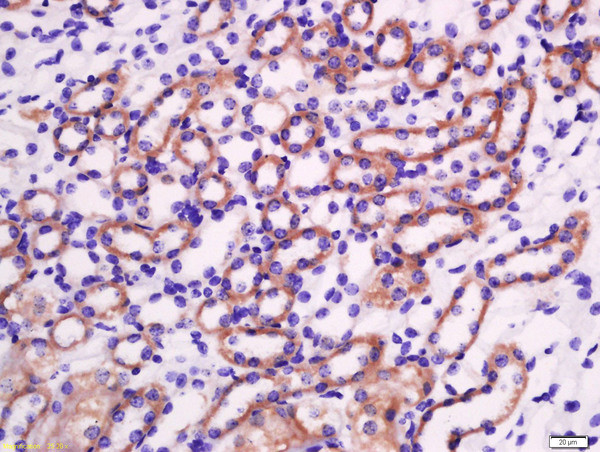Search Thermo Fisher Scientific
Product Details
BS-2578R
Species Reactivity
Host/Isotype
Class
Type
Immunogen
Conjugate
Form
Concentration
Purification
Storage buffer
Contains
Storage conditions
Shipping conditions
Target Information
Cytolytic T lymphocytes (CTL) and natural killer (NK) cells share the remarkable ability to recognize, bind, and lyse specific target cells. They are thought to protect their host by lysing cells bearing on their surface 'nonself' antigens, usually peptides or proteins resulting from infection by intracellular pathogens. The protein described here is a T cell- and natural killer cell-specific serine protease that may function as a common component necessary for lysis of target cells by cytotoxic T lymphocytes and natural killer cells.
For Research Use Only. Not for use in diagnostic procedures. Not for resale without express authorization.
References (0)
Bioinformatics
Protein Aliases: Autocrine thymic lymphoma granzyme-like serine protease; BLT esterase; CTL tryptase; CTLA-3; Cytotoxic T-lymphocyte proteinase 1; Cytotoxic T-lymphocyte-associated serine esterase-3; Fragmentin-1; granzyme 1; Granzyme A; Granzyme A (Cytotoxic T-lymphocyte-associated serine esterase-3; Hanukah factor serine protease); granzyme A (granzyme 1, cytotoxic T-lymphocyte-associated serine esterase 3); Granzyme-1; H factor; Hanukah factor; Hanukah factor serine protease); Hanukkah factor; HF; serine esterase 1; T cell-specific serine protease 1; TSP-1
Gene Aliases: AW494114; Ctla-3; CTLA3; GZMA; Hf; HFSP; Mtsp-1; SE1; TSP-1; TSP1
UniProt ID: (Human) P12544, (Mouse) P11032
Entrez Gene ID: (Human) 3001, (Rat) 266708, (Mouse) 14938

Performance Guarantee
If an Invitrogen™ antibody doesn't perform as described on our website or datasheet,we'll replace the product at no cost to you, or provide you with a credit for a future purchase.*
Learn more
We're here to help
Get expert recommendations for common problems or connect directly with an on staff expert for technical assistance related to applications, equipment and general product use.
Contact tech support

